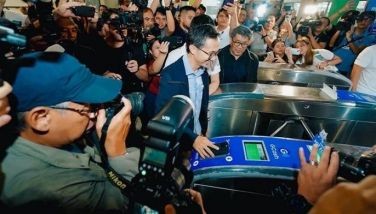Corruption — fighting the good fight
President Aquino has made fighting corruption a central focus of his Admi-nistration. As a long-standing friend of the Philippines, the question for Australia is what experiences we can share in supporting President Aquino’s anti-corruption agenda.
Of course, no country is immune to corruption. So the bar against which we measure ourselves should not be whether corruption arises, but how we respond when it does and what we do to prevent it.
We have had our share of corruption in Australia, too. In 1987, investigative reporters in my home state of Queensland publicised the links between gambling, prostitution, and corruption in the state police. In response, the Queensland government ordered a commission of inquiry into police corruption. The Fitzgerald Commission eventually spent two years investigating long-term, systemic political corruption in the Queensland government.
The Fitzgerald Commission was seminal in shaping Australia’s anti-corruption apparatus. The inquiry contributed to the removal of Queensland’s longest-serving premier and led directly to the jailing of three former Queensland ministers and the police commissioner.
Most importantly, the Fitzgerald Commission resulted in institutional reform. It led to the establishment of independent corruption watchdogs across Australia. It also gave significant impetus to Freedom of Information legislation, since passed nationwide. It is this institutional response that has seen Australia, according to Transparency International, become one of the least corrupt countries in the world. A level playing field for business has supported Australia’s two decades of unbroken economic growth.
For me, this experience demonstrates that the battle against corruption is a battle worth fighting. In the Philippines, the Australian Government is helping the Administration do just that, by providing support for practical steps that reduce opportunities for corruption.
We have worked with the Government’s Public Private Partnership Centre to fund feasibility studies and preparatory work for 24 projects resulting in more cost-effective, transparent and efficient infrastructure for all Filipinos.
We have provided assistance to the Regional Government of the Autonomous Region in Muslim Mindanao to find and remove around 500 ‘ghost’ teachers from the region’s payrolls, resulting in huge savings in public funds. We have worked with Government and civil society partners to remove nearly half a million non-existent or ineligible voters from ARMM voters’ lists.
Together with the Department of Interior and Local Government, we have helped ten provinces across the Visayas and Mindanao to build the engineering, audit and accounting capacity to maintain and extend provincial road networks.
The business community is also playing its part. Domestic and international chambers of commerce, including the Australia New Zealand Chamber of Commerce, are supporting President Aquino’s anti-corruption agenda through the Integrity Initiative.
In short, Australia is here to make a difference. We realise from our own experience that tackling corruption is a difficult challenge, but are pleased to be able to help the Philippines to do so.
- Latest
- Trending
























